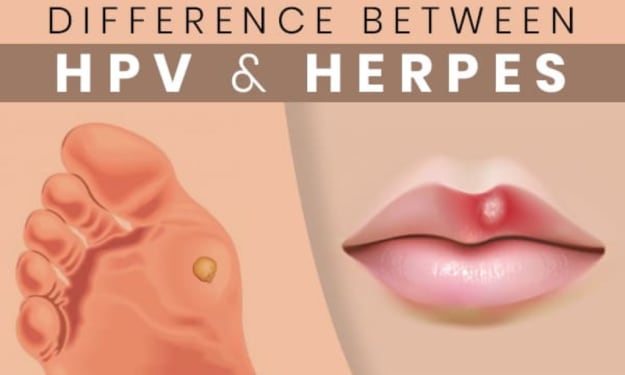Before STI Testing - 14 Things You Need to Know
STI TESTING

It is very critical these days to understand the level of risks around infectious diseases contracted via sex. This is because the number of cases of infection is rising by millions every year. As if that's not enough, an STI like gonorrhoea is getting difficult to treat following its resistance to antibiotics.
Infectious diseases are rising because due to several factors. The use of opioid, a substance that triggers very risky sexual behaviour, is one. People with STIs are also stigmatised, and there are lesser resources for testing and public sensitisation.
Having observed the current state of things, we deem it essential to share these 14 things you should know before having a test for sexually transmitted infections:
1. All individuals need STI screening:Provided you're sexually active, whether old or young, you need to be screened for STI.
2. The frequency of your screening comes down to your level of exposure:According to the CDC report, more STI cases are found among young people between the ages of 15 to 24. So those in this category should test for gonorrhoea and chlamydia every year. As for HIV, everyone needs at least a once in a lifetime screening.
For men sleeping with men, their HIV risk is very high. Gay and bisexual men should be screened annually, two times a year, or more following their number of partners and experiences.
Many STIs have a window period (a time they aren't detected) ranging from a week to several months. This is why STIs may not show up quickly post-sexual activity.
To know more about testing windows and frequency, see the CDC's website.
3. At the risk of HIV? Use a PrEP, condoms, and regular test:Pre-exposure Prophylaxis (PrEP) is ideal for those exposed to HIV. This treatment is highly effective above 90 percent when done right, says the CDC.
Those on PrEP should be screened for HIV and other infections every three months. The use of condoms is encouraged.
For those without HIV, consistent use of PrEP will reduce your risk of HIV by above 90 percent. There's also the PEP - a series of pills that can be taken if you be vulnerable to HIV. It reduces the risk of contracting it.
Your doctor will evaluate your risk factors and recommend testing time or PrEP if it is needed.
4. Be honest:Most STIs are not diagnosed because patients are not open about their symptoms. To get the best help from a doctor, be honest as possible.
5. It's normal and necessary to be screened:Everyday healthcare includes testing for STIs, which are more common these days. Research shows that more than 75 percent of adults will experience HPV in their lifetime. Everyone needs these normal tests.
6. Prevention remains the best solution:Using condoms and PrEP for sexual activity will remove the risk and headache of dealing with infections.
7. Identify a test centre, the cost, and the test duration: You can get tested at a health clinic, health department, primary care physicians, and many other places. Sometimes STI tests are free or relatively cheap depending on the test centre, how much you earn, and health insurance cover.
One easy place to begin is at a doctor's appointment. At-home test kits are available, though not all are effective. See your doctor to know what kind of kits are approved.
Waiting times and result preparation times vary for each testing centre. Some results may come out at once, and others may be ready in 1 to 2 weeks. It depends on the test type anyway.
8. Avoid self-diagnoses from untrusted online sources:While seeking treatment for STIs, people check online for information about symptoms and risk factors. These sources may not be reliable. This is why we advise you to speak with your doctor or check out trustworthy sites.
9. If the STI result is positive, don't panic, it can be treated:Most people are always worried even before an infection is confirmed. Realise that you're not alone. There are others with infection too.
Experts say all the STIs you can be screened for, including HIV, can be treated.
HIV-infected persons can live normal lives with medications. However, getting screening and knowing if you're infected is crucial to taking the right steps to improved health and lesser spread to others.
There are counsellors online that offer helpful advice for mental health and stress problems.
10. There are Apps that lower anxiety about results:To make patients more comfortable, most clinics now adopt technology to deliver results. These technologies are compatible with smartphones and provide timely results electronically.
Rather than verbally saying what the test outcome is in a manner that creates anxiety, your lab results upon completion are sent directly to your smartphone in a way simple enough to understand and follow up if necessary.
This method helps those on PrEP since they're expected to take a re-test after three months.
11. You and your partner(s) should talk: Anyone you had sexual intercourse with in the past six months should be notified if your STI test results come out positive.
12. It is best to have a sex talk before the act: Matters like protection and sexual behaviours should be discussed. We can assure you it won't be comfortable talking about this initially. But with this, you can decide if you will go ahead and have sex with someone following their risk factors.
Effectively talking about this will lower your risks of STIs and any concern you may have for contracting them.
13. Opt for the same time with your partner if having a discussion will be uncomfortable: Experts often say it is very easy to go for the appointment with your partner and discuss with the doctor.
Again, if you have an infection, your partner needs to get screened as a way of showing that you care. It will even help both of you develop a plan for your sexual life.
14. You don't have to be ashamed if you have an STI: That someonewas diagnosed with an STI doesn't reduce their self-worth, goodness, or the love they deserve.
Making infected people feel unwanted is a faster killer than the infection itself – they are emotionally affected.
Efforts are made to remove every hint of stigma from STIs so that more people can get tested freely without any fear of criticism.
15. You should not be scared of sex:Most times, people rule out sex simply because of fear of sexually transmitted diseases. It shouldn't be so. Everybody deserves a healthy and happy sex life. This is why you need to make efforts to talk to your partner about STIs, discuss honestly with your doctor and be free with yourself, knowing that you are not alone in this. And with that, you can have a more satisfying and pleasurable sex life.
Final words
Having an STI is not the end of your life on earth. The good news is that most of them can be treated, and symptoms of some others can be managed effectively. We offer same day STI testing in London. Schedule an appointment with us today!





Comments
There are no comments for this story
Be the first to respond and start the conversation.